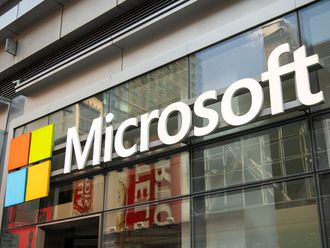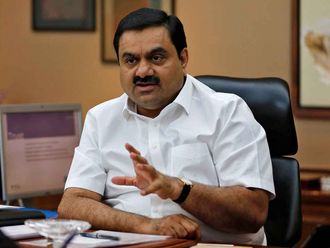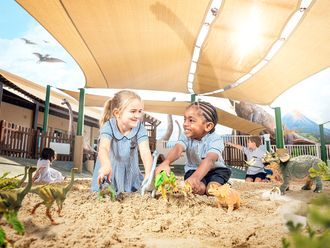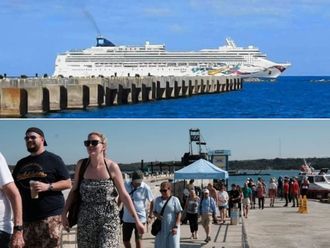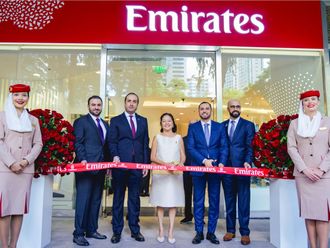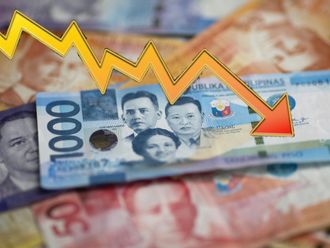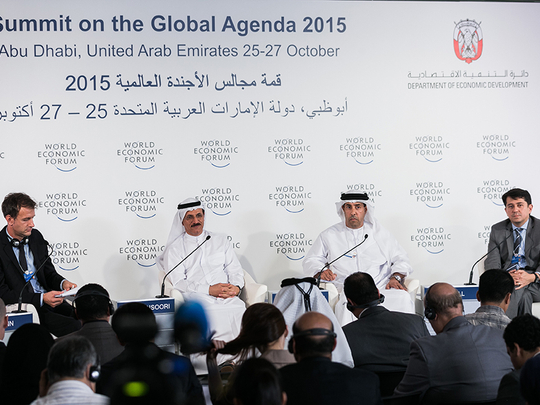
Abu Dhabi: The last two years have seen various global economic challenges, the biggest of which have been the slowdown in the Chinese economy, the depreciation of the euro, and the political crisis in the Middle East, Sultan Al Mansouri, the UAE’s Minister of Economy, said on Sunday.
Speaking at a press conference to mark the opening of the World Economic Forum Summit on Global Agenda, Al Mansouri said that the event aims to discuss challenges in the global economy, as well as what can be done to overcome such challenges.
The key challenges identified this year include economic growth levels, employment and human capital, food security, resource scarcity, gender parity, the future of the internet, international trade, long-term investments and the future of the global financial system.
“With the economic crisis, the issue of investment is becoming a challenging one for many nations, especially nations that were planning to attract investments in order to be able to revive their economies again. [Another challenge] is long-term investment mainly in infrastructure and developments,” Al Mansouri said.
“Of course, we recognised this issue way earlier in the formation of the UAE by making sure the logistics are there, whether it’s ports, airports, highways [and that they] are to the best international standards,” the minister said.
He added that the UAE has a target of attracting a total of 200 million passengers through its airports across the country.
During his speech, Al Mansouri discussed the UAE’s diversification efforts, saying that the small-to-medium enterprise (SME) sector will get a boost, with an aim of increasing its contribution to the economy.
“There’s a clear plan on the federal and local level on how to tackle the SME sector in order to increase the sector’s contribution to gross domestic product. Currently, the contribution stands at around 60 per cent, and our aim is to raise that to the international level, which reaches over 90 per cent.
“Obviously, this will take some time, but the necessary plans have been laid out already,” he said.
The Summit on Global Agenda kicked off in Abu Dhabi on Sunday, and will run till Tuesday, with 900 key decision makers from around the world expected to attend.
The summit brings together over 80 groups of experts from academia, business, civil society, international organisations and governments. The event’s purpose is to come up with ideas and help shape the programme for the World Economic Forum’s annual meeting, which will take place on January 2016 in Davos, Switzerland.
This year, the event is being held for the third time in Abu Dhabi and will address issues of strategic importance to the UAE and the Middle East and North African region, including robotics, artificial intelligence, among others.
“The governments [from around the world] are listening, but it depends on each individual government, whether they want to make changes in their country or not,” Al Mansouri said.
Also speaking at the event was Ali Al Mansouri, chairman of Abu Dhabi’s Department of Economic Development, who stressed that the UAE’s infrastructure was part of its long-term plans for diversification.
“Such infrastructure leads to growth in the overall economy. We expect that the country’s economy will grow at a rate of 3-3.5 per cent, and may even reach 4 per cent,” the chairman said.




